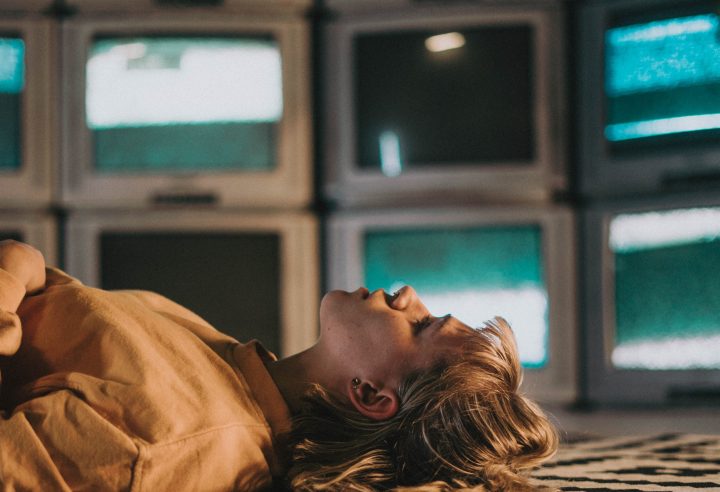THE CONVERSATION
What’s insomnia like for most people who can’t sleep? You’d never know from the movies

Most movies tend to minimise or exaggerate insomnia symptoms. Insomnia is also rarely depicted as an illness that can be treated.
Hollywood appears fascinated by sleep’s impact on the mind and body. Blockbuster movies featuring someone living with insomnia include Sleepless in Seattle (1993), Fight Club (1999) and Insomnia (2002). But how well do these and other portrayals compare with what it’s really like to live with insomnia?
As we’ll see, most movies tend to either minimise or exaggerate symptoms. Insomnia is rarely depicted as a treatable illness. And these portrayals have implications for the estimated one in three of us with at least one insomnia symptom.
Back in the real world
Insomnia is a common sleep disorder where a person struggles to fall asleep, stays asleep, or wakes up too early – despite having adequate opportunity for sleep. Around 5% of adults experience significant insomnia to the degree that it causes distress or impairs daily life.
It’s a common misconception that insomnia is only a night-time issue. Insomnia can impact your ability to stay awake and alert during the day. It can also affect your mental health. At work, you might be more prone to accidents, more forgetful, or make poorer decisions. At home, you might be irritable or short with your friends and family.
“Schedule some “worry time” earlier in the day, so these thoughts don’t happen at night.”
Six ways to stop your racing mind and get the sleep you need 👇@Flinders
https://t.co/wcBlCHHOGN— The Conversation – Australia + New Zealand (@ConversationEDU) July 10, 2023
So what is it like living with insomnia? Apart from the effects of poor sleep quality, many people experience anxiety or dread about the night ahead from the moment they wake up. From early in the day, people plan how they can improve their sleep that night.
A review found people living with insomnia felt their sleep concerns were often trivialised or misunderstood by healthcare professionals, and stigmatised by others.
Movies can minimise symptoms …
Nicholas Galitzine’s character in the recent romcom Red, White and Royal Blue (2023) has insomnia. We’re briefly told he struggles to fall asleep at night. However, we never see any meaningful impact on his life or depiction of the difficulty living with insomnia entails.
That said, minimising the impact of insomnia can have benefits: it shows insomnia is an invisible illness, doesn’t have obvious visual symptoms and anyone can have it. But this can perpetuate the expectation someone with insomnia should be able to function unencumbered. Or it can fuel the misconception having insomnia may be beneficial, as in Insomnia Is Good for You (1957).
… or exaggerate symptoms
But most Hollywood portrayals of insomnia tend to depict the most extreme cases. These usually feature insomnia as a symptom of another condition rather than a disorder itself, as is commonly experienced. These movies tend to be psychological thrillers. Here, insomnia is often used as an enigma to keep the audience guessing about which events are real or figments of a character’s imagination.
Take The Machinist (2004), for example. The main character is emaciated, ostracised and plagued by paranoia, hallucinations and delusions. It’s only towards the end of the movie we learn his insomnia may be the result of a psychiatric disorder, such as post-traumatic stress disorder.
Hollywood’s focus on extreme cases of insomnia is a recurring pattern (for instance, Fight Club 1999, Lucid 2005).
It’s understandable why Hollywood latches onto these extreme portrayals – to entertain us. Yet these portrayals of insomnia as something more severe or threatening, like psychosis, can increase anxiety or stigma among people living with insomnia.
While it’s true other medical conditions including mental illnesses can lead to insomnia, insomnia often exists on its own. Insomnia is often caused by more mundane things like too much stress, lifestyle and habits, or longer daylight hours at higher latitudes (such as in Insomnia, 2002).
Something these exaggerated portrayals do well is highlight the impact sleep deprivation can have on safety, albeit extremely dramatised. Regardless of profession, not getting enough sleep at night can substantially impact cognitive function, increasing the chance of making a mistake.
Movies rarely depict treatment
It is rare to see insomnia depicted as a health condition requiring medical care. Very few characters struggling with insomnia seek or receive help for it.
An exception is the narrator in Fight Club (1999). But he has to pretend to have other illnesses to receive therapy, again suggesting insomnia is not a legitimate condition.
Why does accurate representation matter?
Many people only learn about the symptoms and impact of sleep disorders through pop culture and film. These portrayals can affect how others think about these disorders and can impact how people living with these disorders think about themselves.
Uniform and stereotypical portrayals of insomnia can also impact people’s likelihood of seeking help. Most of these films show young or middle-aged men experiencing insomnia. Yet women are more likely to have insomnia than men. Insomnia is also more common in older adults, people with a lower socioeconomic background and those living alone. People at higher risk of developing insomnia might not recognise their risk or symptoms if their experience doesn’t match what they’ve seen.
We can do better
While the reality of living with insomnia may not be particularly cinematic, filmmakers can surely do better than using it as a convenient plot point.
There are several main characters living with different health conditions across pop culture. For instance, the movie Manchester by the Sea (2016) features someone with prolonged grief disorder and the TV series Atypical (2017-2021) features someone’s experience living with autism. But if you’re looking for an accurate portrayal of insomnia, Hollywood still has some way to go. It’s about time insomnia is depicted in a way that accurately reflects people’s experiences. DM
This story was first published on The Conversation. Aaron Schokman is a PhD Candidate at the University of Sydney. Nick Glozier is a Professor of Psychological Medicine, BMRI & Disciplne of Psychiatry at the University of Sydney.




















 Become an Insider
Become an Insider
Comments - Please login in order to comment.